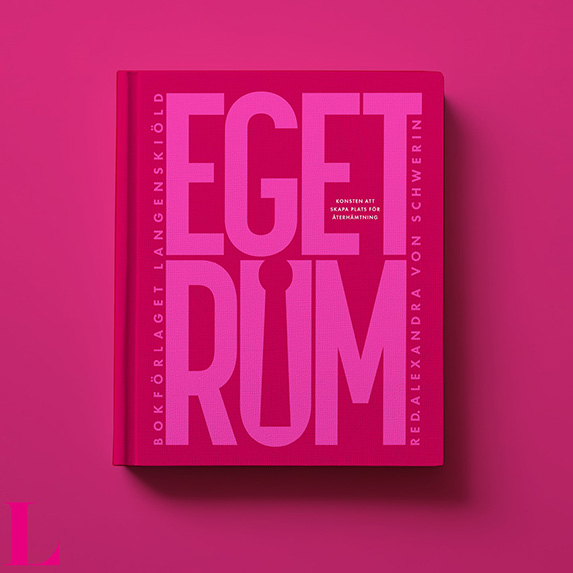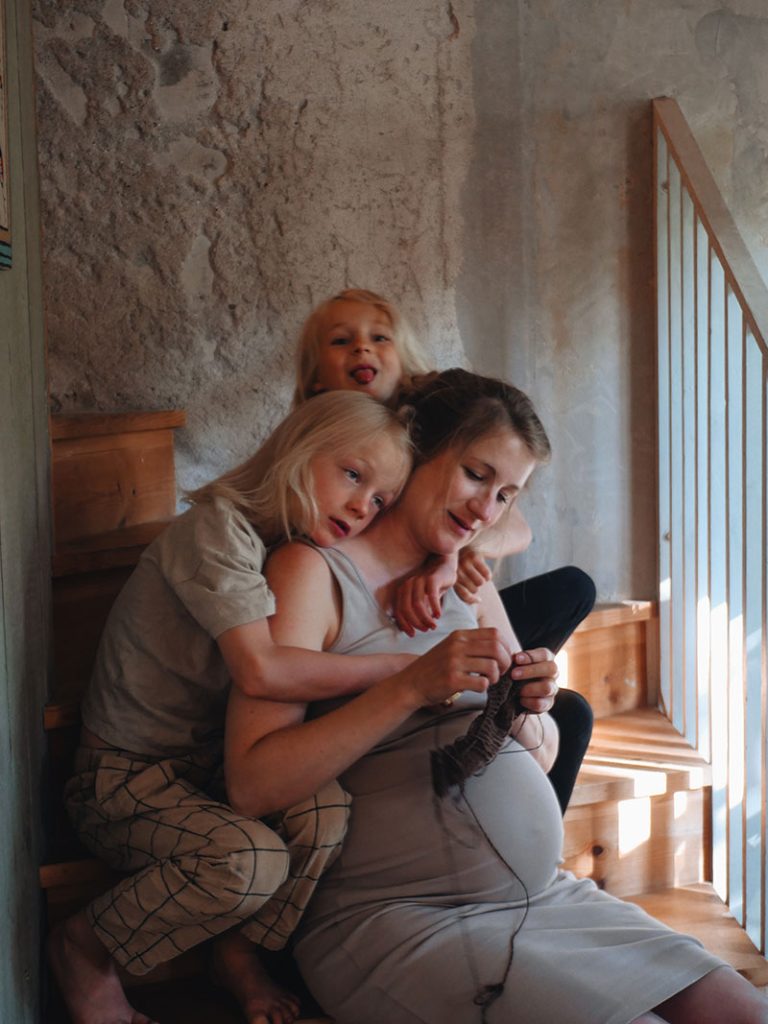Eget Rum - About women's recovery
New book – Eget Rum – about the art of creating space for recovery. Five experts and 25 women tell their stories.
For centuries, women have been expected to be the first to wake up and the last to go to bed. Today’s women with full calendars still have a hard time answering what they do when they are free. Despite reforms, they still take the main responsibility for domestic and care work. Add to this the social media demands for a beautiful body, family idyll and a beautiful home.
The richly illustrated anthology Eget Rum is about how you create a breathing space in your life. Not just for the weekend or on vacation, but every day. The book interviews women who have dared to take their own space – from Patti Smith to the Queen’s wife, via the train conductor in Farsta and the glove maker in Paris. It doesn’t have to be a physical space, but can be a break, a change of pace and a resting room.


A number of prominent researchers and experts tell you what you can gain from your own room, a moment of recovery and natural medication. Here you will begin to breathe calmer, lower your shoulders, gain new energy and enjoy life again.
Order the book here: Adlibris Bokus
Participating:
You may not have thought about how and where you recover? What even is a room of your own? Philosopher and theologian Ann Heberlein asks in Chapter 1 if it is simply not the right to be left alone?
Historian and professor Eva Helen Ulvros travels through the book from the 13th century to the present day, trying to find answers to why women have always been expected to be the first to wake up and the last to go to bed. In the richly illustrated book, you also get to peek through the keyhole of a number of famous women throughout history who, despite everything, managed to get their own room.
Astrid Lindgren stayed in bed for lunch, Jane Austen had a portable desk, Tove Jansson got her own island and Queen Marie Antoinette got her mistresses’ pleasure palace.
Humans can handle having many balls in the air, says professor of psychiatry Marie Åsberg in the book’s chapter 3. It is not the high level of stress that tires us out – we are built to cope with very severe stress for short periods. What creates fatigue is long-term stress and the lack of daily recovery.
Recovery is like mental brushing. You can’t save brushing your teeth for the weekend or vacation, you have to brush your teeth every day. Find out where and how you relax. What works for one person may not necessarily work for another.


Dare to make choices. Dare to set limits. Dare to say no. This is what the head of the Stress Clinic, therapist Giorgio Grossi, will help you with in chapter 4.
You don’t get any tips on how to physically set up a corner in your home for recovery. However, architect Nirvan Richter suggests in Chapter 5 that you start by sorting and putting away. There is a saying that says, “If we own more than 50 things, the things own us.” We often talk about dead cleaning – life cleaning instead, says Nirvan. Dare to choose to eliminate, both mentally and physically. Make room for life!
Throughout the book you will find a long list of examples of living women’s own rooms that can inspire you. Meet, among others, mother of three Sarah Hurni Åsberg who locks herself in her bathroom for an hour every night. What does she do there?
Mother of five Pernilla Norén sits down at the loom for fifteen minutes every morning before everyone else wakes up and she heads off to work. Musician and author Patti Smith spots a small rockery that she makes into her writing den.
Culture director Karin Karlsson locks herself in the nearest toilet and takes ten deep breaths. Journalist and mother of three Hedvig Weibull rhymes on the train on her way to work, and Her Majesty the Queen’s wife Anna Hamilton longs for her Friday club where seven friends have gathered every Friday afternoon for 30 years and talked about everything.
The book also offers you a 9-step Eget rum school. Here’s how to get started and create your own space.

The book Eget Rum – The Art of Creating Space for Recovery , is produced by Skarhults Kulturminne and will be published on March 8, 2025 by Langenskiölds förlag. Editor Alexandra von Schwerin.